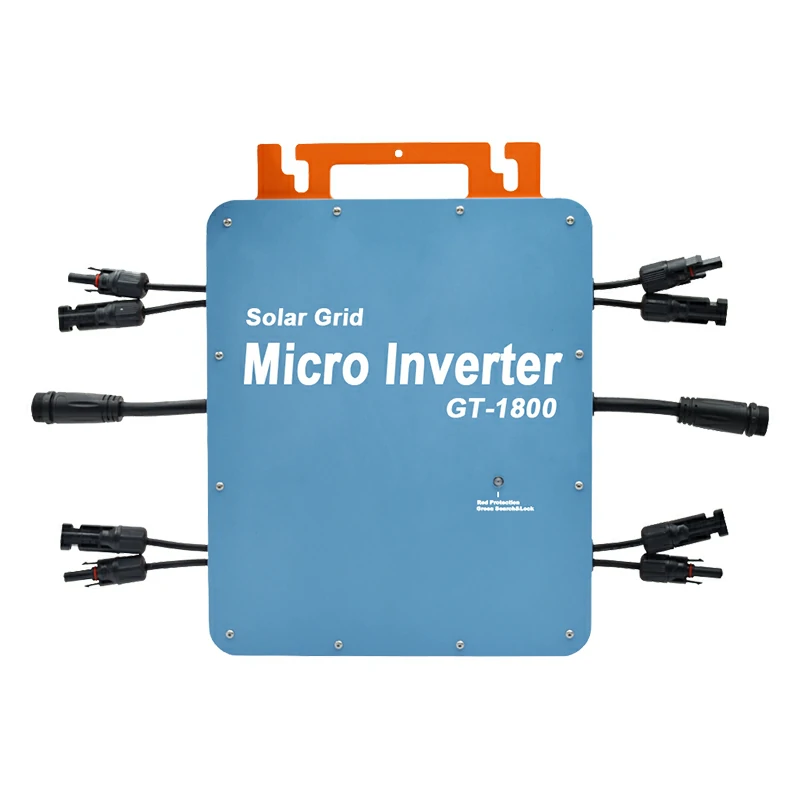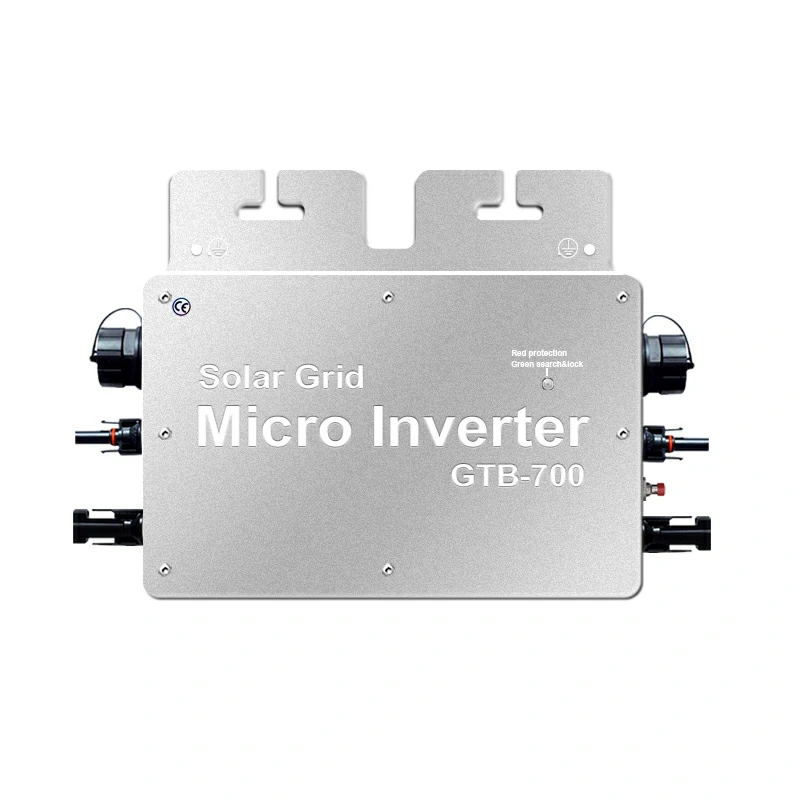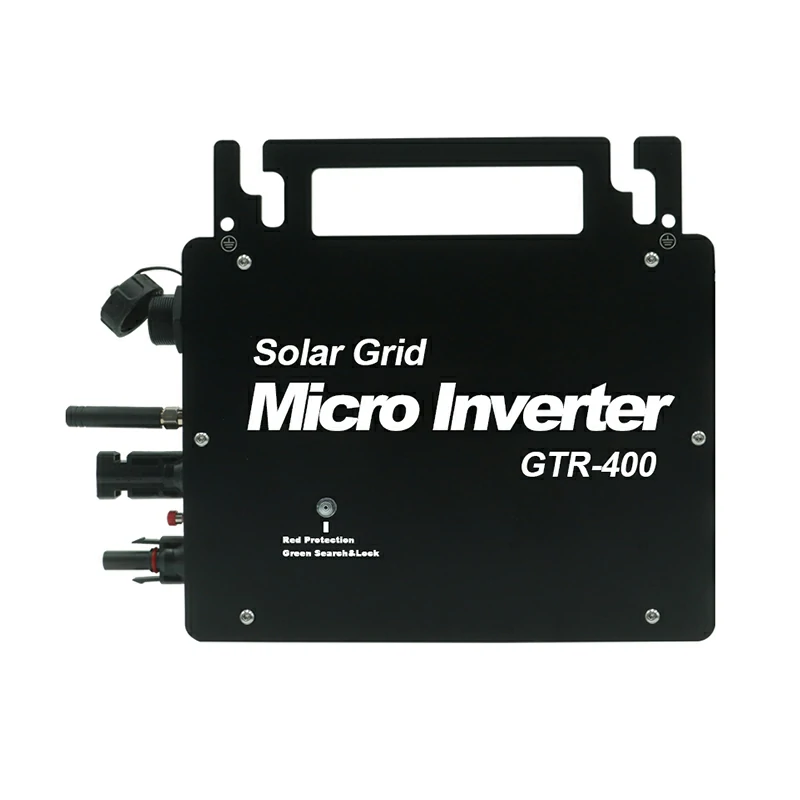Introduction
In today’s energy landscape, distributed solar power generation networks play an increasingly significant role in meeting electricity demands while reducing carbon emissions. However, integrating renewable energy sources, such as solar power, into existing electrical grids poses unique challenges, particularly concerning grid stability and resilience. This article explores how Micro Inverters, provided by reputable Micro Inverter manufacturers and suppliers, can address these challenges and enhance the overall performance of distributed solar power systems.

Understanding Micro Inverters
Micro Inverters are essential components in solar photovoltaic (PV) systems, and they are responsible for converting the direct current (DC) generated by solar panels into alternating current (AC), which is suitable for use in households and the electrical grid. Unlike traditional central inverters, Micro Inverters are installed on each solar panel, offering several advantages in efficiency, flexibility, and performance monitoring.
The Impact of Distributed Solar Power on Grid Stability
The intermittent nature of solar power generation can lead to fluctuations in electricity output, posing challenges to grid stability. Traditional solutions often involve complex control mechanisms and may need to be more suitable for distributed solar systems. This is where Micro Inverters, supplied by reliable Micro Inverter suppliers, come into play, offering real-time power management and optimization to stabilize grid voltage and frequency.
How Micro Inverters Enhance Grid Stability
Micro Inverters play a crucial role in enhancing grid stability by regulating voltage and frequency, mitigating voltage fluctuations and harmonics, and enabling smoother integration of solar power into the electrical grid. Their ability to operate independently ensures that issues affecting one solar panel do not impact the entire system, improving overall system reliability.
Ensuring Resilience in Distributed Solar Networks
Resilience is essential for the reliable operation of distributed solar networks, particularly in grid disruptions or emergencies. Micro Inverters provide islanding protection, allowing solar panels to continue generating power even when disconnected from the grid. Additionally, advanced control mechanisms enable seamless grid integration, ensuring that distributed solar systems can contribute to grid stability during normal and adverse conditions.
Addressing Common Concerns and Misconceptions
Despite their numerous benefits, some common concerns and misconceptions surround Micro Inverters. One of the primary concerns is the reliability and durability of these devices, especially given their exposure to varying environmental conditions. However, reputable micro-inverter manufacturers prioritize rigorous testing and quality control measures to ensure their products meet industry standards for reliability and longevity.
Another concern is compatibility with existing solar PV systems. Fortunately, Micro-Inverters are designed to be compatible with a wide range of solar panels and system configurations, making them a versatile choice for both new installations and retrofits. Additionally, micro-inverters can often be integrated seamlessly into existing monitoring and control systems, providing users with comprehensive insights into their solar power generation.
Cost-effectiveness is also a consideration for those considering micro-inverters for their distributed solar systems. At the same time, Micro Inverters may have a higher upfront cost than central inverters. However, their performance advantages and potential for increased energy production can result in a quicker return on investment over time. Furthermore, some micro-inverter suppliers offer competitive pricing and financing options to make the transition to micro-inverters more accessible for consumers.
Future Trends and Innovations in Micro Inverter Technology
The future of micro-inverter technology holds promising advancements that could further enhance their role in distributed solar power generation networks. One potential development is the emergence of grid-interactive micro-inverters, which can dynamically adjust their output to support grid stability and respond to utility signals. Additionally, integrating energy storage systems, such as batteries, could enable distributed solar systems to store excess energy during low or high-demand production.
As the demand for renewable energy continues to grow, Micro Inverter manufacturers and suppliers are also focusing on developing new standards and regulations to ensure the safe and effective deployment of Micro Inverters in distributed solar systems. By staying abreast of these developments and collaborating with industry stakeholders, Micro Inverter users can ensure they invest in reliable and future-proof technology for their solar power generation needs.
Conclusion
In conclusion, micro-inverters enhance grid stability and resilience in distributed solar power generation networks. By providing real-time power management, voltage regulation, and islanding protection, micro-inverters enable the seamless integration of solar power into the electrical grid while ensuring reliable operation under various conditions. As technology advances, Micro Inverter users can look forward to more significant performance improvements and innovations that will further optimize their solar power generation capabilities. When considering Micro Inverters for their distributed solar systems, users should prioritize reputable Micro Inverter manufacturers and suppliers who offer high-quality products and comprehensive support services.




